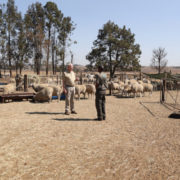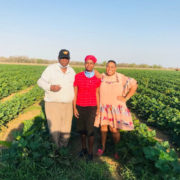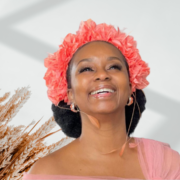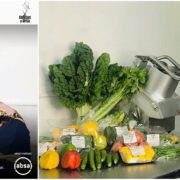Tech to help you become a better chicken farmer – African Farming
Improve your farm and cut costs with ARCC’s IoT system. PLUS, enter this competition and you could win one of these systems.
Any chicken farmer worth his salt knows there are five crucial aspects that determine a hatch’s success: feed, fresh air, water flow, light and temperature. ARCC’s IoT system lets you monitor these five things in the finest detail – all from an instrument panel on your computer and smartphone.
Specialist, wireless sensors, which have a battery life of between two and five years, make it easier than ever to determine if there’s enough clean water, how much water is being used, how warm or cold it is, if there’s enough feed and when you’ll have to buy new feed. And it can do so much more.
If there are any problems in the hatch, you’ll receive a warning via SMS or email, and it makes it easier and simpler to plan and save on things like water and electricity.
No reception or signal on your farm? No problem. ARCC’s SIGFOX network works with radio waves (not cellphone networks) to communicate.
Optimal farm productivity – this is the ARCC IoT system’s main goal. In addition to this, ARCC offers pre- and post-installation support to ensure that the system is used exactly as it should be to best help your farm.
What is IoT?
IoT means Internet of Things, and it refers to the connection of smart devices or sensors in a network that enables them to communicate with each other autonomously.
The data collect from different sensors, for example CO² levels, water flow and temperature, is then displayed in an instrument panel on your smartphone.
ARCC DEVICES ON OFFER
- Utility devices – monitor water flow and use
- Temperature gauges – monitor temperatures of -20 to 50 degrees Celsius and can be used in fridges and freezers.
- Temperature and moisture sensors
- CO2 meters – measure the temperature, moisture, light and CO2 levels
- Ultrasonic-level sensors – measure water levels, for example in dams
- Pressure sensors – measure the pressure in water pipelines and can help find leaks
- ARCC optics – electricity monitoring
- ARCC FT poultry scale
- Silo sensors and scales – measure in kilograms the amount of feed in a silo
WHAT ARE THE COSTS?
There are different options. Farmers can pick and choose from the devices on offer to create an affordable system that will best benefit their business. If your system costs more than R10 000, you qualify for financing with the option to pay over 36, 48 or 60 months.
- Basic package installation cost: About R21 548 or a minimum payment of R547,18 per month
- Comprehensive package installation cost: About R71 048 or a minimum payment R1 804,18 per month
Device prices range from R1 750 (for a thermostat, for example) to R14 950 (for a poultry scale).
To measure the temperature or humidity per day per hennery is about R2,20; CO2 is R3,30; silo monitoring is R5 and chicken weight is R5. Monitoring costs include daily and monthly reports. Your farm’s data is stored for three years, and this is also included in the cost. The data can be stored for longer on request.
Learn more:
Want to see what the device panel looks like? Click here and use the details below to sign in.
Username: andre@arccwc.co.za
Password: 1234
Or speak directly to ARCC. Visit them at www.arccwc.co.za or contact Frikkie at 061 441 1555.
WIN!
One lucky reader can win a temperature gauge, water flow sensor and free monitoring for three months. The prize is worth R 4 000. To enter, answer the question below and fill in your details.
Question: What network does ARCC use to send information?
Answer: SIGFOX
Name:
Surname:
Email address:
Contact number:
Full delivery address:
COMPETITION RULES, TERMS AND CONDITIONS: The competition runs from X 2021 until 5PM on X 2021. You have to be the legal owner of the cell phone or have the owner’s permission to use the cell phone. You may enter as many times as you like. In case of a competition with more than one prize and multiple draws, entrants may only win once per competition. You may enter as many times as you like. Staff members of Media 24 and the prize sponsor and their immediate family as well as their advertising agencies may not enter. Winners will be chosen by random draw and will be notified telephonically. If a winner can’t be reached within three calls during business hours, a new winner will be chosen. Winners’ names will be published on (drum.co.za / you.co.za / huisgenoot.com / kuier.co.za). Media24 and the prize sponsor take no responsibility for any damage caused by entering or taking part in this competition. Prizes are non-transferable and may not be exchanged for another prize or for cash. The prize sponsor is responsible for delivery of prizes within a reasonable time (8-12 weeks). You may only win a competition once every six months. It’s the winner’s responsibility to provide a daytime address for delivery or a postal address (residential rather than a PO box address) and to be present to receive the prize and/or timeously collect the prize from a post office (if relevant). Media24 and the sponsor take no responsibility for loss of the prize should the winner not be present to receive it or neglect to collect it from a post office. By entering this competition you agree that Media24 and the sponsor may occasionally contact you regarding promotions and other marketing that may be relevant to you, subject to your right to decline such promotions and marketing. By participating in this competition, you agree to the processing of your personal information in accordance with the Media24 privacy policy, which is accessible at https://www.media24.com/privacy/
We and our sponsors reserve the right to vary, postpone, suspend or cancel the competition or any prizes or any aspect thereof without notice at any time, for any reason. In the event of such variation, postponement, suspension or cancellation, you agree to waive any rights, interests or expectations that you may have against Media24 or our sponsors, and acknowledge that you’ll have no recourse against us and our sponsors.
















